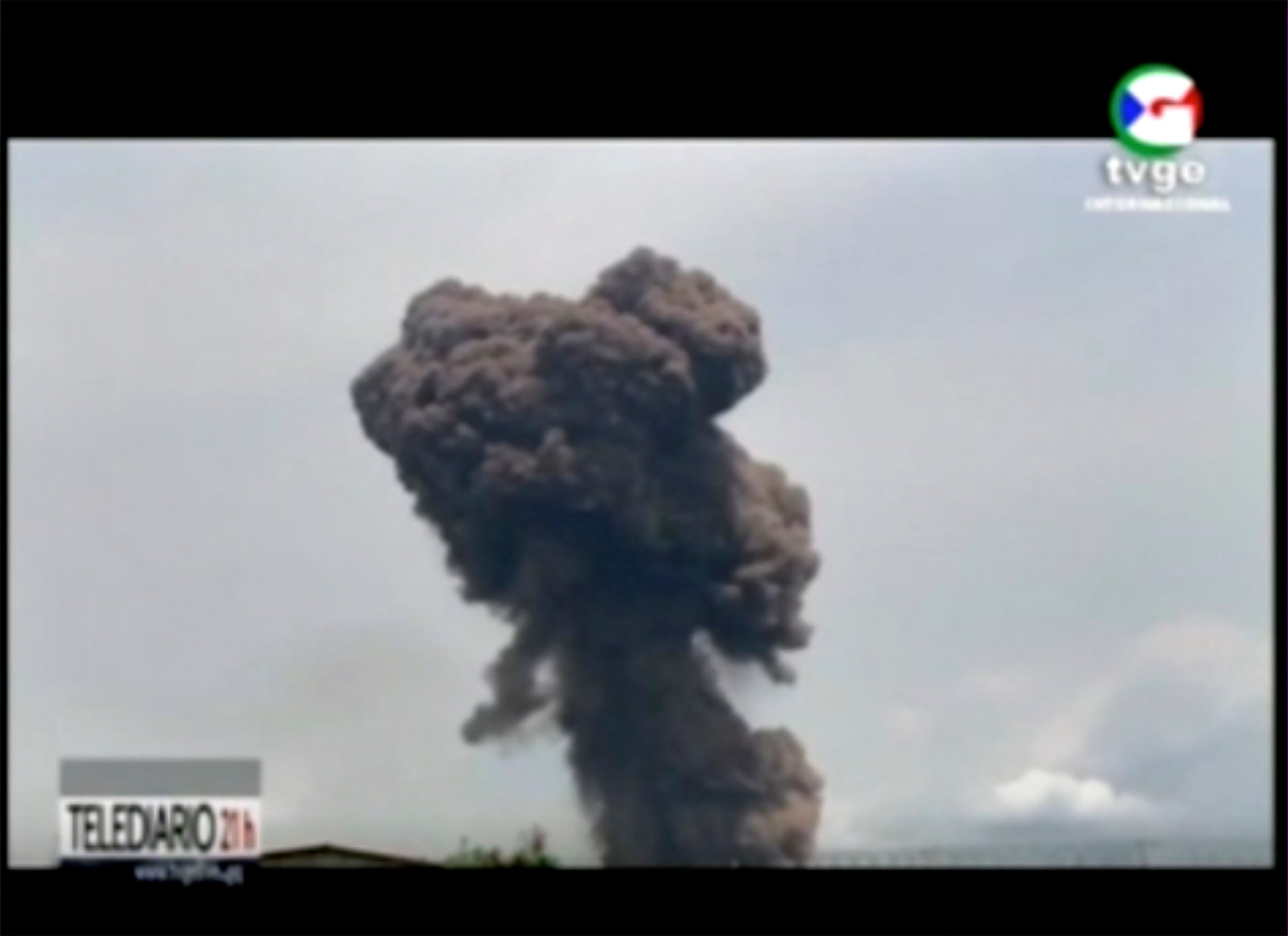At least 20 dead, 600 wounded in Equatorial Guinea blasts
Equatorial Guinea authorities say a series of explosions at a military barracks in Equatorial Guinea killed at least 20 people and wounded at least 600 others

Your support helps us to tell the story
From reproductive rights to climate change to Big Tech, The Independent is on the ground when the story is developing. Whether it's investigating the financials of Elon Musk's pro-Trump PAC or producing our latest documentary, 'The A Word', which shines a light on the American women fighting for reproductive rights, we know how important it is to parse out the facts from the messaging.
At such a critical moment in US history, we need reporters on the ground. Your donation allows us to keep sending journalists to speak to both sides of the story.
The Independent is trusted by Americans across the entire political spectrum. And unlike many other quality news outlets, we choose not to lock Americans out of our reporting and analysis with paywalls. We believe quality journalism should be available to everyone, paid for by those who can afford it.
Your support makes all the difference.A series of explosions at a military barracks in Equatorial Guinea killed at least 20 people and wounded more than 600 others on Sunday, authorities said.
President Teodoro Obiang Nguema said the explosion at 4 p.m. local time was due to the “negligent handling of dynamite” in the military barracks located in the neighborhood of Mondong Nkuantoma in Bata.
“The impact of the explosion caused damage in almost all the houses and buildings in Bata," the president said in a statement, which was in Spanish
The defense ministry released a statement late Sunday saying that a fire at a weapons depot in the barracks caused the explosion of high-caliber ammunition. It said the provisional toll was 20 dead and 600 injured, adding that the cause of the explosions will be fully investigated.
The country's president said the fire may have been due residents burning the fields surrounding the barracks.
State television showed a huge plume of smoke rising above the explosion site as crowds fled, with many people crying out “we don’t know what happened, but it is all destroyed.”
Images on local media seen by The Associated Press show people screaming and crying running through the streets amid debris and smoke. Roofs of houses were ripped off and wounded people were being carried into a hospital.
Equatorial Guinea, an African country of 1.3 million people located south of Cameroon, was a colony of Spain until it gained its independence in 1968. Bata has roughly 175,000 inhabitants.
Earlier, the Health Ministry had tweeted that 17 were killed and the president’s statement mentioned 15 dead.
The Health Ministry made a call for blood donors and volunteer health workers to go to the Regional Hospital de Bata, one of three hospitals treating the wounded.
The ministry said its health workers were treating the injured at the site of the tragedy and in medical facilities, but feared people were still missing under the rubble.
The blasts were a shock for the oil rich Central African nation. Foreign Minister Simeón Oyono Esono Angue met with foreign ambassadors and asked for aid.
“It is important for us to ask our brother countries for their assistance in this lamentable situation since we have a health emergency (due to COVID-19) and the tragedy in Bata,” he said.
A doctor calling into TVGE, who went by his first name, Florentino, said the situation was a “moment of crisis” and that the hospitals were overcrowded. He said a sports center set up for COVID-19 patients would be used to receive minor cases.
Radio station, Radio Macuto, said on Twitter that people were being evacuated within four kilometers of the city because the fumes might be harmful.
Following the blast, the Spanish Embassy in Equatorial Guinea recommended on Twitter that “Spanish nationals stay in their homes."
___
Joseph Wilson reported from Barcelona, Spain.
___
A previous version of this story was corrected to show that state television is TVGE, not TGVE.